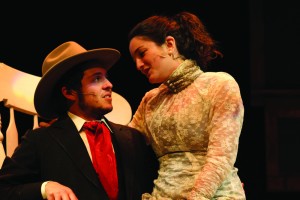By Ben Kaufman, Madison Lane, and Nikole Stevens
Layout Editors and Contributing Writer
Early Jan 9, a group of groggy college students and faculty, staff, and administrators began their journey to New Orleans for a week of Hurricane Katrina relief. The trip was a “Service Learning Trip” organized by the Office of Civic Engagement, but it was much more than just building houses or going on vacation. It was a life-changing experience.
Every January and May since 2006, the Hurricane Katrina Recovery Team has traveled to New Orleans for a little over a week to help rebuild. Janice Butler, director of civic engagement and service learning, has organized the trip each year. “While I’ve definitely seen changes in the past five years, a lot of folks continue to struggle, and we owe it to these resilient people to lend a hand,” she said.
Although some past groups have worked with Habitat for Humanity, this January we worked with the St. Bernard Project, which was founded in March 2006 to help victims from the St. Bernard Parish return to their homes and communities. After Hurricane Katrina, 100 percent of the houses were deemed uninhabitable, making it one of the hardest hit areas in Louisiana.
Today, New Orleans still needs our help. “The amount of work still to be done is astounding,” said Eryn Nagel ’12, who first visited New Orleans in June 2007 and returned with us this year. Houses are still in disarray, and entire neighborhoods have been destroyed. It is obvious that some houses have barely been touched since the hurricane hit, some still with the spray-painted “X” on their siding from the initial searches.
We were lucky enough to meet the people of New Orleans and hear their first-hand experiences. The first person we met was Dr. Lopez, who was working at Charity Hospital in the heart of the city. He and his staff stayed in the hospital for five days after the storm to take care of patients. Even when the power went out and they had to rely on manual work, they saved over 200 people. He said that the experience was life-changing and made him remember why he became a doctor. He was very inspirational, and after we heard his story, we went to work more motivated and ready to help.
We then met Paul Perez. Perez’s family was one of thousands that were displaced after the storm. After the St. Bernard Project helped his family get back on its feet, he decided to thank them in the best way he knew how: food. Every month, his family and a small group of other families cook a homemade meal for all of the volunteers working at the time. At this dinner, Perez showed us a slideshow about the “angels” on Earth that have helped him. Seeing pictures of his family before and after the storm, along with the tears of love on his face when the lights came back on, were more thanks than anyone could have asked for.
Later in the week, we spent a day in Mississippi to learn about the damage there. Most of us had no idea that Mississippi was even hit by Hurricane Katrina, but once we were there the devastation was apparent. Chris Lagarde, former aid to Congressman Gene Taylor, gave us background information about the effect of the storm on his town of Bay St. Louis. In New Orleans homes were damaged by floodwater and remained, but the homes in Mississippi were churned by the storm surge, and the receding waters pulled the debris back into the Gulf of Mexico. Entire homes were missing from their lots of land, even five years later. Not many people realize that Mississippi experienced so much damage, but they are still rebuilding just like New Orleans. After working for the day on a house that Lagarde recently purchased, he showed us true Southern hospitality by inviting us over for a traditional boiled shrimp dinner and a bonfire.
One thing everyone noticed was how positive people are. “I was struck this time by how many people thanked us for not forgetting them and the city,” Provost Mick Smyer said. “There is still so much to do, and New Orleanians are worried that the country and the world have forgotten about them.”
Anyone interested in going on a future trip should visit the Office of Civic Engagement in the lobby of Ellen Clarke Bertrand Library. Donations can be made at www.stbernardproject.org. Above all, do not forget New Orleans.
